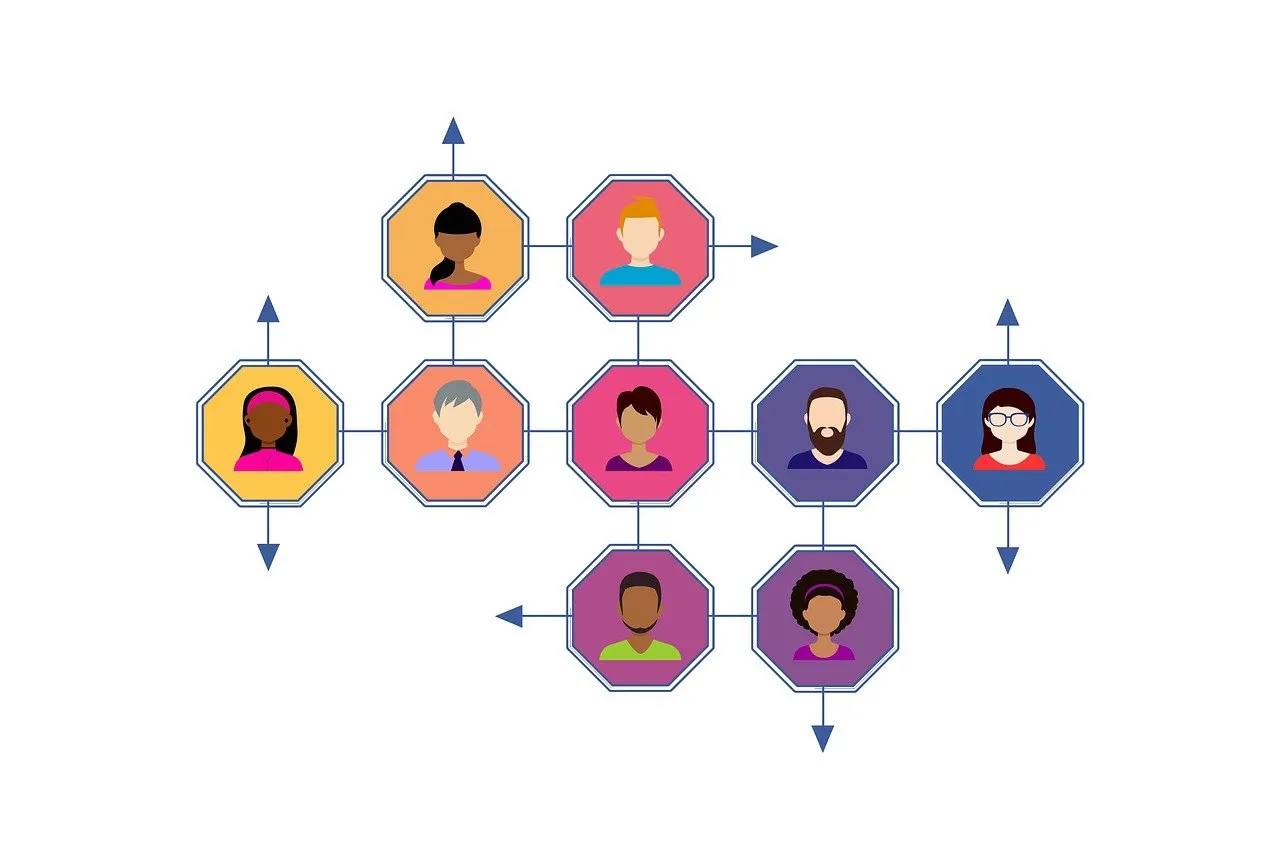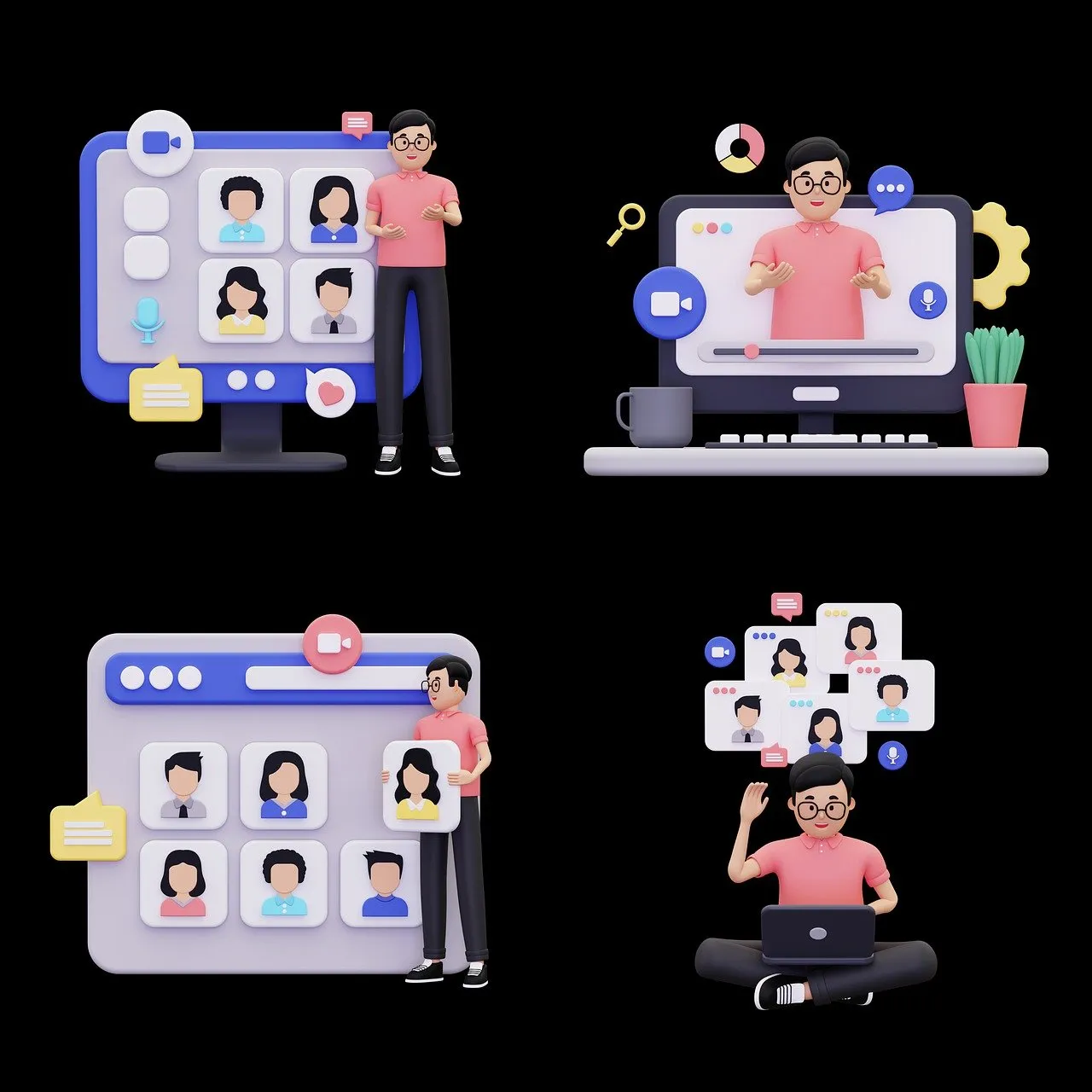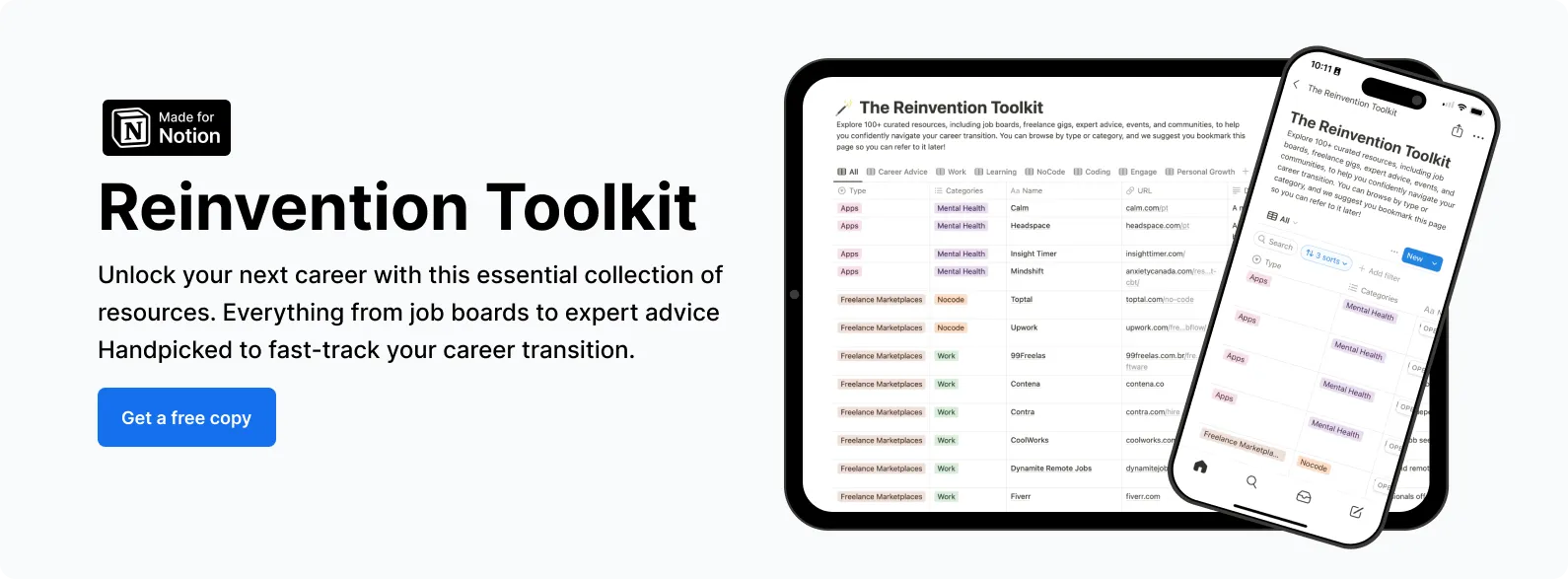7 Networking Strategies to Boost Career Growth During Reskilling
Networking is essential for career growth, especially during reskilling. These 7 strategies will help you build meaningful connections that support your journey into a new career.
Table of contents

Networking is essential for career growth, especially during reskilling. These 7 strategies will help you build meaningful connections that support your journey into a new career.
Reskilling is an empowering journey that opens doors to new opportunities, but building a professional network during reskilling programs is crucial to capitalize on this transformation. Networking provides access to valuable resources and connects you with like-minded individuals who can help you grow in your new career.
However, navigating the networking process during reskilling can be challenging, especially when transitioning into a new industry or role.
To help you on this journey, we’ve outlined seven strategies that will enable you to build and nurture a professional network that supports your career growth.

Building a strong professional network during reskilling programs is crucial for enhancing your career prospects. By strategically connecting with industry peers, mentors, and potential employers, you can gain valuable insights, opportunities, and support. These seven strategies will guide you in effectively expanding your network and positioning yourself for long-term success in your new career path.

Setting clear networking goals is the foundation of effective networking. Without defined objectives, networking can feel aimless and overwhelming. Before diving into networking activities, take time to identify what you want to achieve. Are you looking to connect with industry experts, find potential mentors, or simply learn from peers who are on a similar journey? Whatever your goals may be, having them clearly defined will help you stay focused and make your networking efforts more productive.
For instance, if you're reskilling into a tech role, your goals include connecting with experienced developers, joining relevant online communities, or attending industry-specific events. Setting these targets allows you to tailor your networking activities to meet them, ensuring that each interaction brings you closer to your objectives.
As Siranjeevi Ramdoss highlights in his LinkedIn post, understanding your networking objectives allows you to focus on quality connections that align with your career aspirations.
Azrael819 echoes this sentiment on Reddit, where he/she stresses the importance of setting specific goals to maximize the benefits of your network.
Practical Tip: Write down your networking goals and revisit them regularly. This practice will keep you on track and allow you to adjust your strategy as needed.
Unlock career success with these 6 tips on leveraging support systems in reskilling programs.

Networking goes beyond swapping business cards; it's about creating real, meaningful connections. In reskilling, where you might start from scratch, authenticity is your greatest asset. By focusing on building trust and offering value to others, you can create meaningful connections that can last a lifetime.
Authentic relationships are built on mutual respect and shared interests. Instead of approaching networking with a transactional mindset, consider it an opportunity to connect with people who share your passions and goals. For example, if you’re reskilling into digital marketing, look for individuals who are not only in the same field but also share your enthusiasm for innovation and creativity.
Mike Richards emphasizes authenticity in his piece on LinkedIn, highlighting how being genuine can set you apart in the professional world.
For more insights, communities like Creative Mornings and The NoCode Crew provide platforms to connect with others who share your interests and values, fostering authentic relationships. These communities offer networking opportunities and a sense of belonging, which is especially important during reskilling when you might feel out of your comfort zone.
Practical Tip: When reaching out to new connections, focus on how you can add value rather than what you can gain. This approach will help you build more meaningful and lasting relationships.

In today’s digital age, online platforms are indispensable for building a professional network. They offer endless opportunities to connect with professionals across the globe, regardless of your location. Whether you want to join industry-specific communities, participate in discussions, or showcase your work, online platforms can significantly enhance your networking efforts.
LinkedIn is an obvious choice, but don’t overlook other platforms like Reddit, Twitter, and specialized communities that cater to your industry. For example, if you’re reskilling into software development, platforms like GitHub and Stack Overflow are excellent places to network and demonstrate your skills.
Brooke B. Sellas's LinkedIn post discusses the power of social media in professional networking. She emphasizes the importance of being active and engaging on these platforms to build a strong online presence.
Communities like Circle Community and 100 Days of NoCode are great places to start. These platforms offer a supportive environment where you can connect with others who are also reskilling, share experiences, and learn from one another.
Additionally, social media platforms offer niche communities that can help you find your own tribe. Subreddits like r/careerchange and r/digital_marketing can provide valuable networking opportunities and industry insights.
Don't overlook specialized platforms which are designed to facilitate networking within specific industries. TroopHR is one such example. TroopHR is a niche and specialised networking platform for HR personnel to communicate and learn.
Practical Tip: Regularly update your profiles on these platforms to reflect your current skills and career goals. Engage with content that interests you and contribute to discussions to increase your visibility.

Attending industry events and meetups is one of the most effective ways to expand your professional network. These events offer opportunities to meet industry leaders, potential employers, and like-minded professionals. They also provide a platform to showcase your knowledge, ask questions, and engage in meaningful discussions that can lead to new connections.
Whether it’s a large conference or a small meetup, the key is to be proactive and make the most of these opportunities. Prepare in advance by researching the attendees and speakers, and clearly understand what you want to achieve from the event. Don’t hesitate to step out of your comfort zone and introduce yourself to new people. Remember, everyone at these events is there to network, so they will likely be receptive to your approach.
Lotte Pitcher shares her experience with solo conferencing in her Dev.to article, emphasizing the value of attending these events. Solo conferencing, while challenging, can be incredibly rewarding if you approach it with the right mindset.
Here is a list of upcoming events across major cities in Europe, that bring together industry experts, startups, and professionals from various sectors, providing a fertile ground for making valuable connections. Attend these events as per your convenience and build effective network.
Practical Tip: Following an event, follow up with the people you met. A simple message on LinkedIn or an email can solidify the connection and keep the conversation going.


Following up is just as important as making the initial connection. Many people make the mistake of networking extensively but fail to maintain those connections over time. To ensure your network remains solid and beneficial, following up and staying in touch with your contacts is essential.
This doesn’t mean you need to be in constant communication, but regular check-ins, sharing relevant content, or simply acknowledging their achievements can go a long way in maintaining a relationship. By keeping the lines of communication open, you ensure that when the time comes to leverage your network, the connections are still warm and ready to help.
Dean Kulaweera, in his LinkedIn post, explains the importance of following up and how it can set you apart from others in your field. Consistent follow-up shows that you value the relationship and are genuinely interested in the other person’s success.
Practical Tip: Use tools like CRM systems or a simple spreadsheet to keep track of your networking activities. Note essential details about each contact and set reminders to follow up regularly.

Mentorship can be a powerful form of networking. By connecting with a mentor, you gain access to their knowledge and experience and their network. A mentor can guide you, introduce you to key people in the industry, and help you navigate reskilling challenges.
Finding the right mentor can be challenging but worth the effort. Look for someone with experience in the field you’re transitioning into and who shares your values and work ethic. Once you’ve established a mentorship relationship, seek advice and feedback proactively. Show appreciation for their time and insights, and be open to learning from their experiences.
In her HBR article, Dorie Clark discusses how alum networks can serve as valuable mentorship and professional growth resources. By tapping into these networks, you can find mentors who are not only knowledgeable but also invested in your success.
Organizations like Mentors Outreach can help you find the right mentor to guide your career during reskilling. These platforms connect you with experienced professionals who can offer personalized guidance and support.
Practical Tip: Be clear about what you hope to achieve from the mentorship. Whether career advice, industry insights, or expanding your network, having defined goals will help you and your mentor get the most out of the relationship.

Finally, it's essential to measure the effectiveness of your networking strategy and make adjustments as needed. Networking is not a one-size-fits-all approach; what works for one person may not work for another. Regularly assessing your networking efforts will help you identify what’s working and where there’s room for improvement.
Consider keeping track of metrics such as the number of meaningful connections made, the quality of those connections, and any opportunities that have arisen. By analyzing these metrics, you can refine your approach, focusing on the strategies that yield the best results.
Maimoona Majid and Marek Hadac both offer insights on measuring networking success in a LinkedIn community thread. By regularly reviewing and tweaking your networking approach, you can stay on track and continue to grow your professional network.
Practical Tip: Don’t be afraid to try new networking strategies if something isn’t working. The key is to stay adaptable and open to change.
With the list of top strategies for building a strong professional network coming to an end, you are now equipped to apply this theory during your reskilling program to enhance your career prospects.
Unlock job opportunities with our guide on top personal branding strategies, including building a strong online presence, networking effectively, and showcasing your unique skills and experiences.
Building a professional network during reskilling programs is essential for career growth. You can effectively enhance your career prospects by setting clear goals, building authentic relationships, utilizing online platforms, attending events, maintaining connections, seeking mentorship, and continually adjusting your goals.
Remember, networking is an ongoing process that requires effort and dedication, but the rewards are well worth it.
With these strategies in hand, you’re now equipped to build a strong, supportive professional network that will help you succeed in your reskilling journey and propel your career to new heights.
Ready to boost your career? Explore the reskilling programs at NoCode Institute to get started!
Looking to re-invent yourself and turn your talent into a career? Stay up to date with the latest.